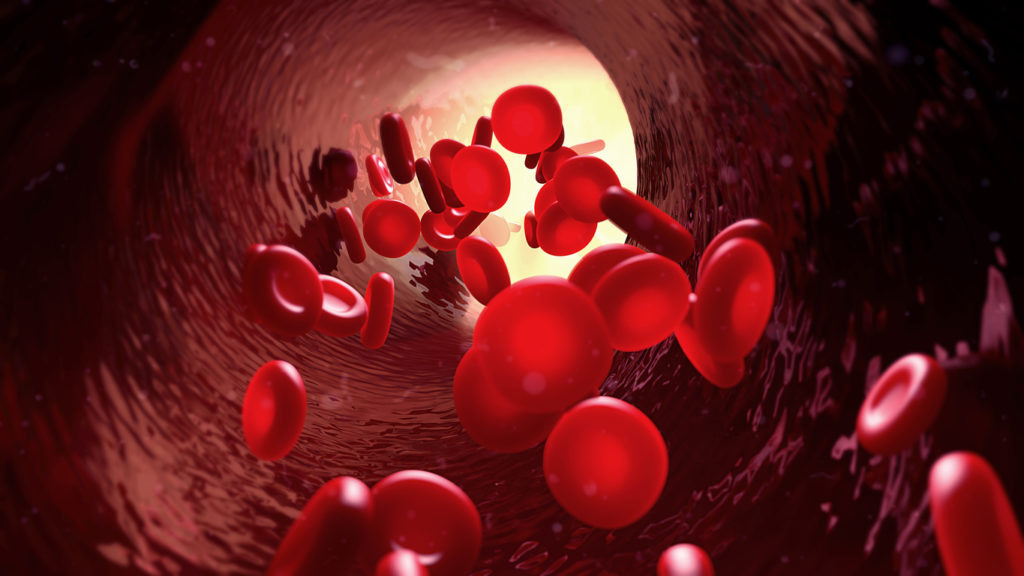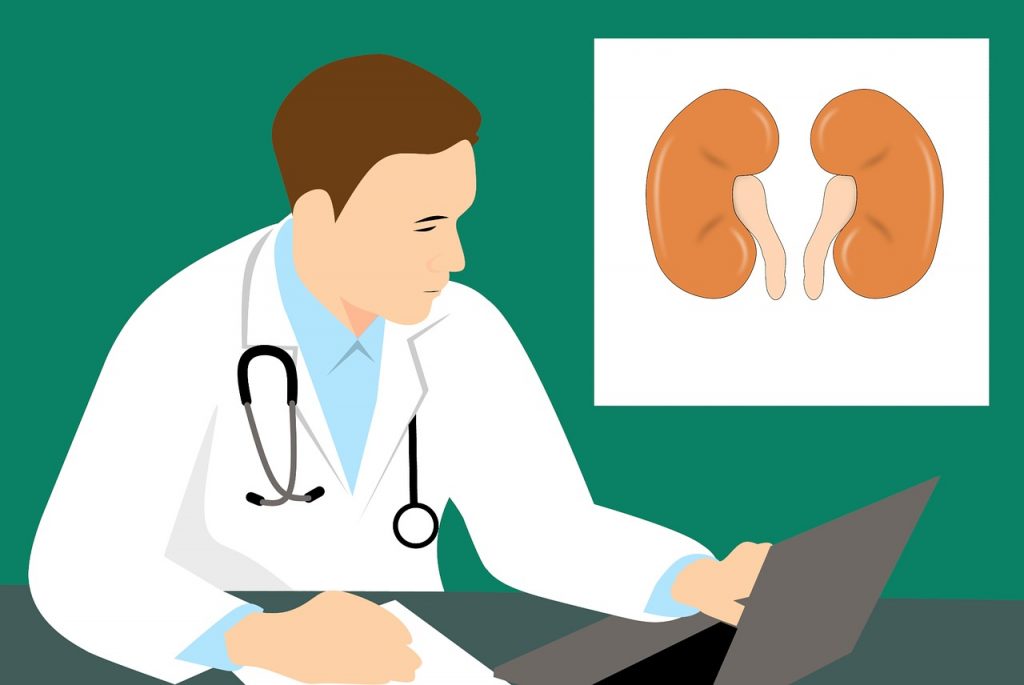Autosomal-Dominant Polycystic Kidney Disease (ADPKD) is the most common hereditary renal disease, characterised by the progressive development of fluid-filled cysts in the kidney leading to progressive loss of renal function and eventually to renal failure. It is responsible for 8% to 10% of the cases of end stage renal disease (ESRD) in Western countries. ADPKD progression is largely dependent on the development and growth of the cysts and secondary disruption of the normal tissue. Renoprotective interventions in ADPKD – in addition to achieve maximal reduction of arterial blood pressure and proteinuria and to limit the effects of additional potential promoters of disease progression such as dyslipidemia, chronic hyperglycemia or smoking – should also be specifically aimed to correct the dysregulation of epithelial cell growth, secretion, and matrix interactions characteristic of the disease. Genetically in the ADPKD three different genes are implicated (PKD1 85% of the cases, PKD2 15% and probably PDK3 not yet identified). PKD1 gene encodes a protein named polycystin-1 (PC1). Defect in PC1 lead to aberrant activation of the enzyme mTOR in the epithelial cells of the renal tubules which eventually leads to abnormal proliferation of these cells and cysts generation. Sirolimus (Rapamycin) is an immunosuppressant mostly used for the management of kidney transplant recipients. This drug by very specifically and effectively inhibiting mTOR, exerts antiproliferative and growth inhibiting effects and could be extremely important for the inhibition of cyst progression in ADPKD. Animal models of ADPKD have shown that short-term treatment with sirolimus resulted in dramatic reduction of kidney size, prevented the loss of kidney function, and lowered cyst volume density. Similarly, retrospective observations from kidney transplant recipients have documented that sirolimus treatment reduced kidney volumes by 25%, whereas there was no effect in patients not given the drug.Overall, these findings provide the basis for designing a prospective study in ADPKD patients aimed to document the efficacy of sirolimus treatment in preventing further increase or even reducing the total kidney volume and the renal volume taken up by small cysts, eventually halting kidney disease progression. It is a 6 month treatment with sirolimus compared to conventional therapy in adult patients with ADPKD and normal renal function or mild to moderate renal insufficiency.
Official Title
Sirolimus Treatment in Patients With Autosomal Dominant Polycystic Kidney Disease: Renal Efficacy and Safety (SIRENA Study).
Conditions
- Polycystic Kidney
Study Type
Interventional
Study Design
Treatment, Randomised, Open Label, Active Control, Crossover Assignment, Efficacy Study.
Further Details
Primary Outcome Measures:
- Total kidney volume (estimated by computed tomography, CT) in sirolimus and conventional treatment ADPKD groups during 6 month follow-up.
[Time Frame: Baseline and at six months of follow-up.]
Secondary Outcome Measures:
- Renal cyst volume, renal parenchymal volume and renal intermediate volume.
[Time Frame: Baseline and at six months of follow-up.]
Study Start
March 2007
Eligibility & Criteria
- Ages Eligible for Study: 18 Years to 80 Years
- Genders Eligible for Study: Both
- Accepts Healthy Volunteers: No
Inclusion Criteria:
- Age >18 years
- Clinical and ultrasound diagnosis of ADPKD
- GFR >40 ml/min/1.73 m2 (estimated by the 4 variable MDRD equation)
- Urinary protein excretion rate ≤ 0.5 g/ 24 hrs
- Written informed consent
Exclusion Criteria:
- Diabetes
- Urinary protein excretion rate >0.5 g/ 24 hrs or abnormal urinalysis suggestive of concomitant, clinically significant glomerular disease
- Urinary tract lithiasis, infection or obstruction
- Cancer
- Psychiatric disorders and any condition that might prevent full comprehension of the purposes and risks of the study
- Pregnancy, lactation or child bearing potential and ineffective contraception (estrogen therapy in post menopausal women should not be stopped)
Total Enrolment
16
Contact Details
Norberto perico, MD
0039 035 45351
perico@marionegri.it
Location:
Hospital "Azienda Ospedaliera Ospedali Riuniti di Bergamo"
Unit of Neprology and Dialysis
Bergamo, Italy
All content and media on the HealthEngine Blog is created and published online for informational purposes only. It is not intended to be a substitute for professional medical advice and should not be relied on as health or personal advice. Always seek the guidance of your doctor or other qualified health professional with any questions you may have regarding your health or a medical condition. Never disregard the advice of a medical professional, or delay in seeking it because of something you have read on this Website. If you think you may have a medical emergency, call your doctor, go to the nearest hospital emergency department, or call the emergency services immediately.







